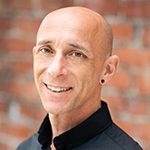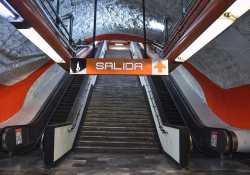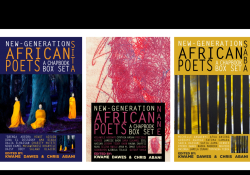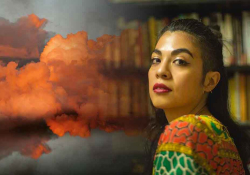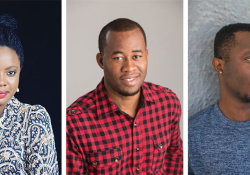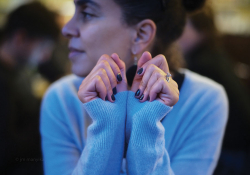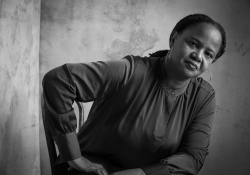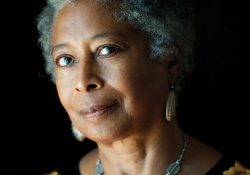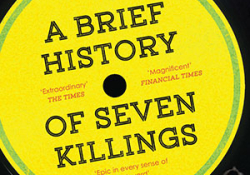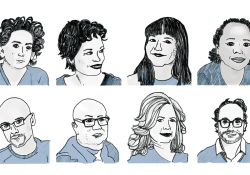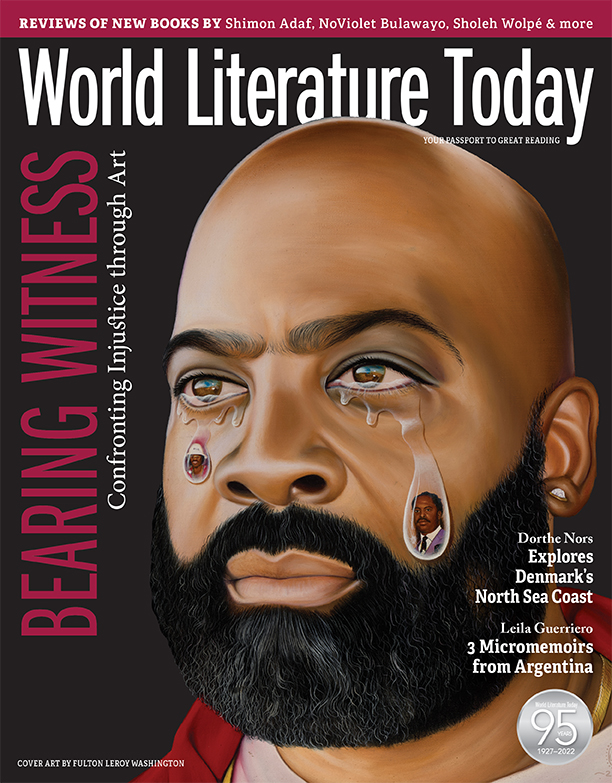Claiming One’s Space in Lagos
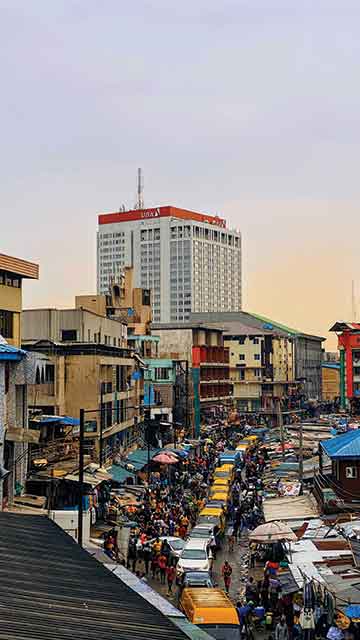
THE WOMEN SLIDE through stalled traffic, balancing on their colorful head scarves baskets of plantains for sale, or groundnuts or shampoo flasks. If they don’t firmly assert themselves into the roadways, these street hawkers pervading the city might not survive. To embrace Lagos—dense, sprawling, the most populous city in Africa with over fifteen million inhabitants—is to demand your space. The monied class claims upscale Victoria Island and its VIP discos like Vellvett and Quilox, where rhythms pump till dawn as they spend 200,000 naira at the bar just to demonstrate that they can. A construction worker in harness claims the twelfth story of yet another Lagos Island high-rise development so he can pay school fees for a child in green uniform who trades insults while she rushes home in Surulere. The korope minibus driver in Ikeja leaps into an adjacent lane, a purely theatrical maneuver, since 4:30 pm traffic remains at a standstill. Gridlock in Lagos, perfected by drivers who treat red lights as irritating suggestions, may be the city’s most widespread bonding ritual, more even than services at the countless churches and mosques that promise deliverance on massive roadside billboards.
But Lagos relieves you with its waters. Named for the Portuguese and Spanish word for lakes, the city is built around a lagoon whose tendrils shape two peninsulas with an island between, all interconnected by a network of bridges. My favored vista point is the gentle rise of the Lekki-Ikoyi suspension bridge, where on a humid morning I joined health-conscious Lagosians in running its narrow walkways, claiming my own space by calling out “on your left” when overtaking pedestrians. People here refer simply to “island” and “mainland,” a dichotomy indicating class as much as geography. The island identifies as bougie, location of high-end hotels, fashion boutiques and the Microsoft Tower, while the mainland represents working-class life. But this rough distinction hardly captures so kaleidoscopic a landscape.
I’d arrived in Lagos on assignment to learn how the city’s LGBT+ community also claims space, a brave aspiration in one of the most homophobic countries in the world, which legally mandates ten years in prison for anyone expressing same-gender affection or attending an LGBT+ gathering. Before my trip, I’d been talking to some of the few publicly out activists, but upon arrival, I discovered a larger community affirming and protecting queer life within the harsh limitations, relying largely on the safety of social media. I met with an organization that publicly advocates, educates, and provides care despite the risk of being shut down. I attended a queer photography exhibit in a luxury hotel, where some attendees wore freely unconventional hair and fingernail styles. I even heard about an Instagram-based speed-dating event. Yet the overwhelming majority of queer Nigerians must keep their identities hidden. On the city’s far outskirts, I visited a safe house, where I met a gay man who was outed by a cousin, threatened with a machete by his father, and forced to suffer religious exorcism. Though he too has claimed at least a temporary space, most others, for now, can only envision a future that includes them.
On the way home from the visit, I stopped at the New Afrika Shrine in Ikeja, a vast open-air pavilion perfumed by marijuana smoke that is dedicated to the legendary musician Fela Kuti, symbol of a public freedom that everyone here deserves. Fela, who almost singlehandledy invented the globally influential Afrobeat genre, suffuses the city as myth, a transcendent artist who blended Yoruba spirit with fierce political protest. I sensed his igniting presence on the shrine’s empty stage, the packed energy Lagos loves to brew—innovative, brash, refusing to be constrained.
